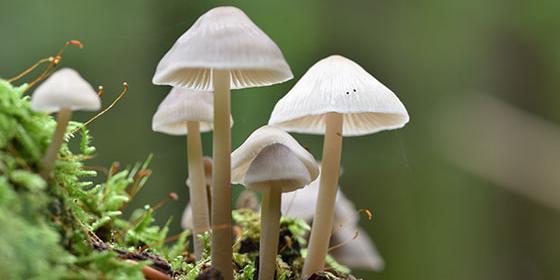I. Introduction
Psilocybin, the active compound in magic mushrooms, is a fascinating molecule with profound effects on the human brain. As research progresses, we’re beginning to unravel the complexities of how psilocybin interacts with our neural circuits to produce its unique products Best $99 ounce online. Let’s delve into the science behind psilocybin.
II. Psilocybin and the Serotonin System
One of the critical interactions of psilocybin is with the serotonin system in the brain. Psilocybin is a psychedelic tryptamine, a family of compounds structurally similar to the neurotransmitter serotonin. Psilocybin, and its active metabolite psilocin, bind to and activate specific serotonin receptors, particularly the 5-HT2A receptor.
The 5-HT2A receptor is widely distributed throughout the brain, especially in regions associated with cognition and perception. When activated by psilocybin, these receptors initiate a cascade of neural activity that leads to altered perceptions and mood, among other effects.
III. The Default Mode Network and Ego Dissolution
One of the most remarkable effects of psilocybin is the sensation of “ego dissolution,” a sense of losing the self or the boundaries between oneself and the world. Research has shown that this experience correlates with decreased activity in a network of brain regions known as the default mode network (DMN).
The DMN is thought to be involved in self-referential thinking and mind-wandering. When activity in this network is decreased, as seen during psilocybin experiences, individuals may have profound experiences of unity and interconnectedness, leading to the sensation of ego dissolution.
IV. Brain Connectivity and Plasticity
Beyond the acute effects of psilocybin, research has shown that psilocybin can lead to long-lasting changes in brain connectivity. Brain imaging studies have shown that psilocybin increases global brain connectivity, improving communication between brain regions that do not typically interact.
These changes in brain connectivity may underlie some of the long-term effects of psilocybin, such as improvements in mood and well-being. There is also evidence that psilocybin may promote neuroplasticity, the brain’s ability to form new neural connections and pathways.
V. The Therapeutic Potential of Psilocybin
The effects of psilocybin on the brain significantly affect mental health treatment. By disrupting dysfunctional thought patterns, promoting brain connectivity, and facilitating significant experiences, psilocybin offers a unique approach to treating depression, anxiety, and PTSD.
Research into the therapeutic applications of psilocybin is still in its early stages, but the results are promising. As we continue to uncover the mysteries of how psilocybin affects the brain, we may find new ways to harness its potential for healing and growth.
VI. Conclusion
The science of psilocybin is a rapidly evolving field, and there is still much to learn about this fascinating compound. By interacting with the serotonin system, altering brain connectivity, and modulating the activity of critical brain networks, psilocybin can induce profound changes in perception, mood, and cognition. As we deepen our understanding of these processes, we may unlock new possibilities for understanding the human mind and treating mental health conditions.






